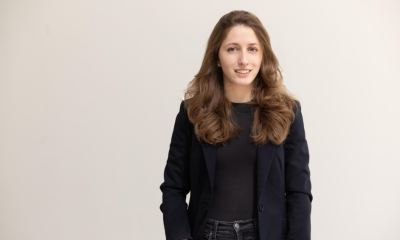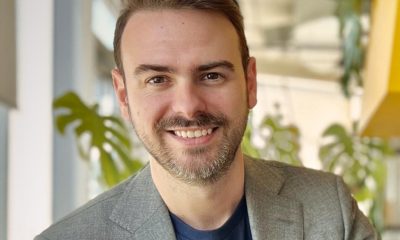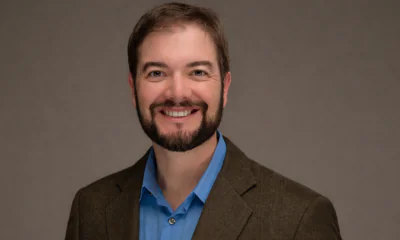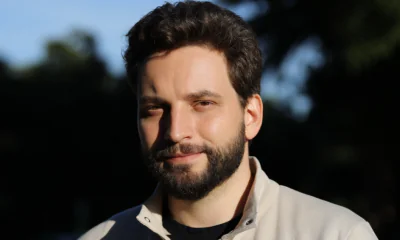Interviews
Deon Nicholas, Co-Founder and CEO of Forethought – Interview Series

Deon Nicholas is the Co-Founder & CEO of Forethought. Previously, Deon built products and infrastructure at Facebook, Palantir, Dropbox, and Pure Storage. He has ML publications and infrastructure patents, was a World Finalist at the ACM International Collegiate Programming Contest, and was named to Forbes 30 under 30. Originally from Canada, Deon enjoys spending time with his wife and son, playing basketball, and reading as many books as he can get his hands on.
Forethought, the AI and Machine Learning platform for the enterprise, began with its focus on customer support. The company’s AI can learn from internal documents, email, chat and even old support tickets to automatically resolve auto-route tickets correctly, and quickly surface the most relevant institutional knowledge. In 2018, Forethought debuted Agatha, an AI-powered support agent, that has reduced support resolution times by up to 30 percent and increased the company’s revenue by 46x. The company just announced it’s Series B funding round from a star studded list of investors including Ashton Kutcher and Guy Oseary’s Sound Ventures, Sean “Diddy” Combs, LL COOL J, and Qualtrics CEO Ryan Smith.
You first learned to code at a very young age, and then challenged yourself to code video games. Could you share this journey?
I’m the third of four boys. When I was little, my brothers and I were really into video games; it was kinda the thing we all did together.
A friend of my older brother was a “hacker”, a literal “get into your computer” hacker. He was really good with computers in general. One day, he saw that I was really interested in video games, so he downloaded a “game maker” program onto our Windows 95 machine, and showed me how to use it. It wasn’t “coding” per se, but a lot of drag-n-drop and logic and storytelling. So I started thinking of video game ideas. Being a fan of Pokemon and Digimon, I made a little RPG called “Dojimon”. That was really the start for me.
Over the years, I came up with more ambitious stories and video game ideas. In middle-school, I had this idea for a massive multiplayer online role-playing game (MMORPG) called “Dojiworld” (I kinda kept the word “doji” throughout my video game ideas). That was much more complicated than the “drag-n-drop” game maker tools could handle, so I learned to really “code” and taught myself C++ in order to build that from the ground up. From then-on, coding became a “superpower”. I never finished Dojiworld… but I may finish it one day 🙂
When did you next realize that you wanted to become involved in AI and machine learning?
In high school, I built an artificial intelligence based learning tool that read and understood my history notes, and quizzed me before tests. Then, at my after-school job at a local drugstore, I was constantly put on the spot to answer customer questions. I wanted to code myself out of the problem. In the past, I had programmed an AI study guide for my history tests… so, why couldn’t I code myself out of this?
Could you share the genesis story behind founding Forethought, including the initial rejection from Y Combinator?
While in college, again and again, I kept coming back to the idea that if I could help myself study with AI, I could use similar technology to help others in every aspect of their lives. After reading more on Natural Language Processing (NLP) and Natural Language Understanding (NLU), I became interested in how this could be used together to help with knowledge management. When I applied to YCombinator, I got rejected. I didn’t get down about it. I tweeted out my rejection letter. It was a catalyst for me. It fired me up and I focused on the product behind Forethought. At Forethought, our mission is to make everyone a genius at their job, and we’re using our AI to do just that.
Could you tell us about Forethought, and how unlike most chatbots it uses real machine learning versus basic automated decision trees?
Forethought has a unique differentiator with Agatha’s ability to learn, understand, and contextualize what’s being input and what is being asked. Companies that use chatbots claim that they are based in AI, but if you look under the hood, you’ll see they’re all only based on keywords or decision trees. Companies tout “AI” as a shiny badge, but aren’t using it to its capacity, especially in customer support. Instead of “If this” rules that suggest, “respond with that answer,” Agatha knows “this” and confidently solves concerns with this, that, and those options uplifting CSAT, NPS, and overall agent growth and capability.
What are some of the enterprise solutions that are offered at Forethought?
Forethought develops AI agents that tackle the most costly and inefficient elements of enterprise. Our first AI, Agatha, supercharges customer support to Solve, Triage, and Assist. Agatha can learn from internal documents, email, chat and even old support tickets to reduce support resolution times by 30%. All of our solutions are based in Natural Language Understanding, and are self-adaptive, learning and making sense of systems over time.
You have a growth mindset, and you are always learning new challenging skills such as math, computers, and physics. How much of your success do you attribute to this?
I’ve definitely always been a curious person and “life-long learner”. It’s helped me to be intrinsically motivated in a variety of areas. Part of the growth mindset, though, is learning to be self-aware enough to “know when you don’t know” something and to ask for help. So I would also say, generosity and mentorship from others has played a huge role as well. And lastly, one can never underestimate how often luck or serendipity come into play.
You’re known for voraciously reading as many books as possible, what type of books do you normally read, and do you have any favorite books or authors that you would recommend?
When I was younger I read a lot of fiction. Definitely devoured the Harry Potter Series, A Series of Unfortunate Events, and Ender’s Game.
Nowadays I pretty exclusively read non-fiction books about leadership or product development or building a sales team, or how to solve algorithmic problems. For me, I read “stand on the shoulders of giants”.
Do you have any advice for minorities who are interested in STEM or machine learning but are reluctant to enter due to the field being dominated by white males?
First and foremost, demystifying the idea that you have to be anyone other than yourself to be successful. Beyond that, it really is about thinking back to first principles. You start with planning it out, how are you thinking about the product, marketing, etc. Think things through from first principles and then build the product and sell it. Focus really matters… 90% of companies fail because people are focused on the wrong things. And always, get help from people who have done it before.
Thank you for the great interview, I can also vouch for Ender’s Game being worth a read. For readers who wish to learn more they should visit Forethought.












